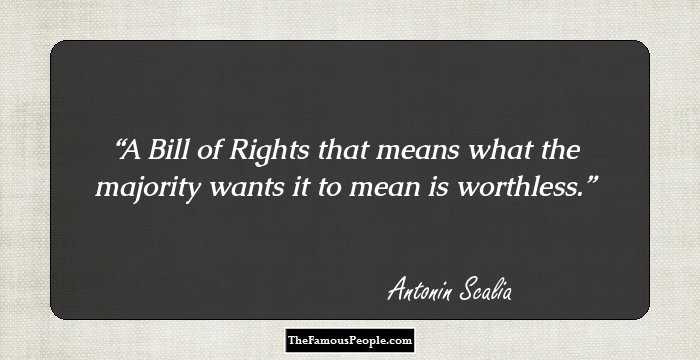
A Bill of Rights that means what the majority wants it to mean is worthless.
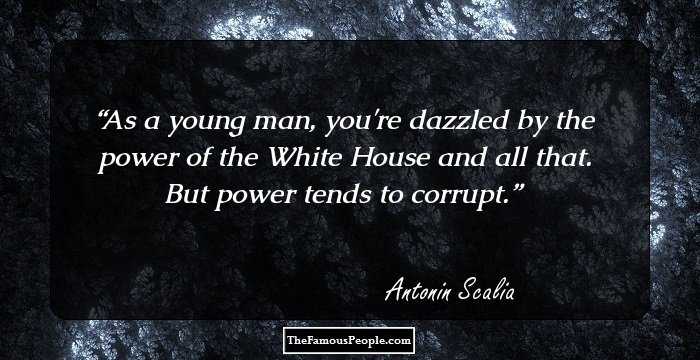
As a young man, you're dazzled by the power of the White House and all that. But power tends to corrupt.
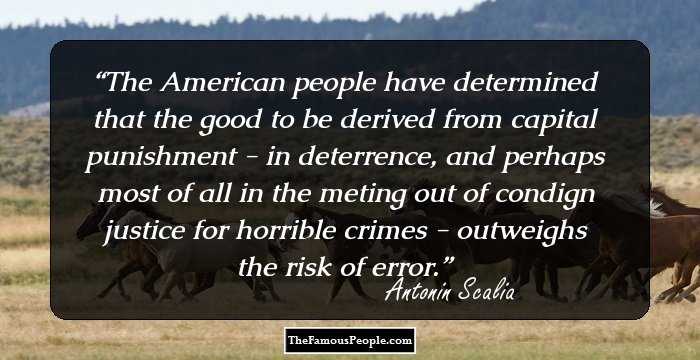
The American people have determined that the good to be derived from capital punishment - in deterrence, and perhaps most of all in the meting out of condign justice for horrible crimes - outweighs the risk of error.
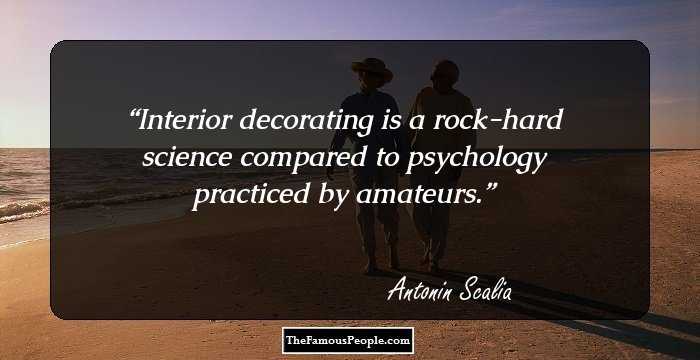
Interior decorating is a rock-hard science compared to psychology practiced by amateurs.
Originalism is sort of subspecies of textualism. Textualism means you are governed by the text. That's the only thing that is relevant to your decision, not whether the outcome is desirable, not whether legislative history says this or that. But the text of the statute.
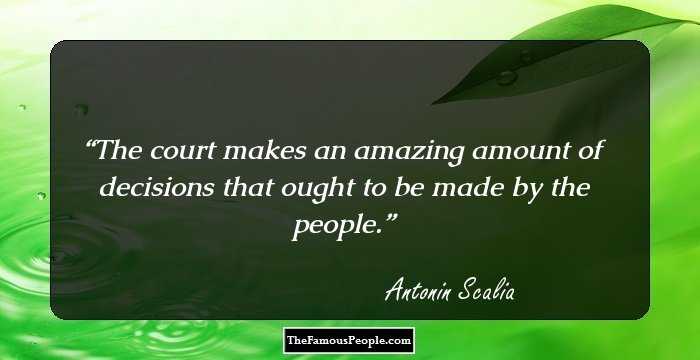
The court makes an amazing amount of decisions that ought to be made by the people.
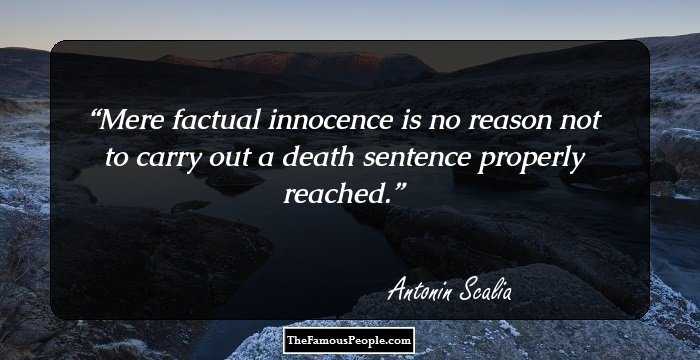
Mere factual innocence is no reason not to carry out a death sentence properly reached.
I attack ideas. I don't attack people. And some very good people have some very bad ideas. And if you can't separate the two, you gotta get another day job. You don't want to be a judge. At least not a judge on a multi-member panel.
If you're going to be a good and faithful judge, you have to resign yourself to the fact that you're not always going to like the conclusions you reach. If you like them all the time, you're probably doing something wrong.
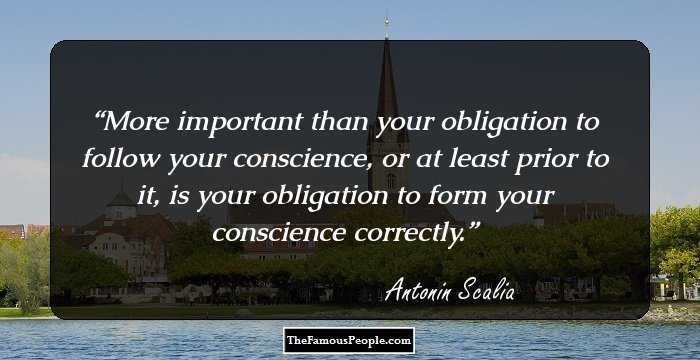
More important than your obligation to follow your conscience, or at least prior to it, is your obligation to form your conscience correctly.
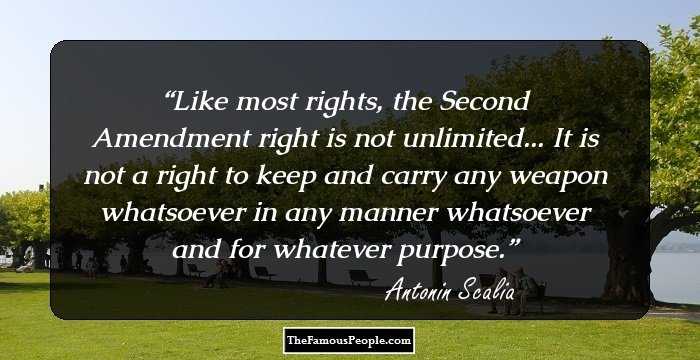
Like most rights, the Second Amendment right is not unlimited... It is not a right to keep and carry any weapon whatsoever in any manner whatsoever and for whatever purpose.
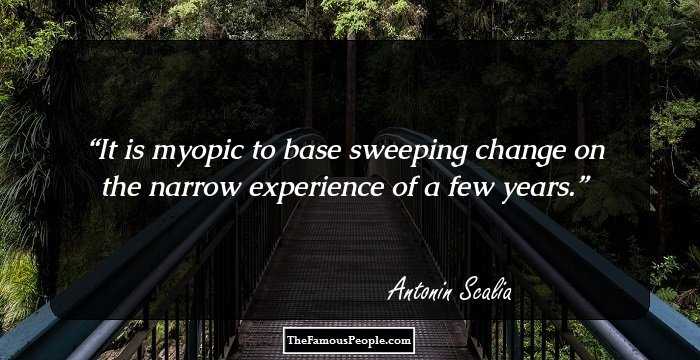
It is myopic to base sweeping change on the narrow experience of a few years.
I do accept that, with - with respect to those vague terms in the Constitution such as equal protection of the laws, due process of law, cruel and unusual punishments. I fully accept that those things have to apply to new phenomena that didn't exist at the time.
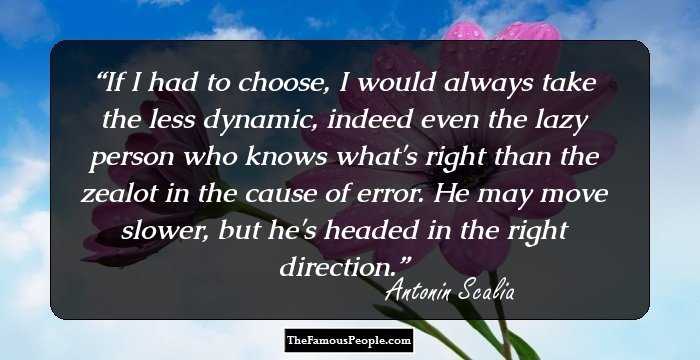
If I had to choose, I would always take the less dynamic, indeed even the lazy person who knows what's right than the zealot in the cause of error. He may move slower, but he's headed in the right direction.
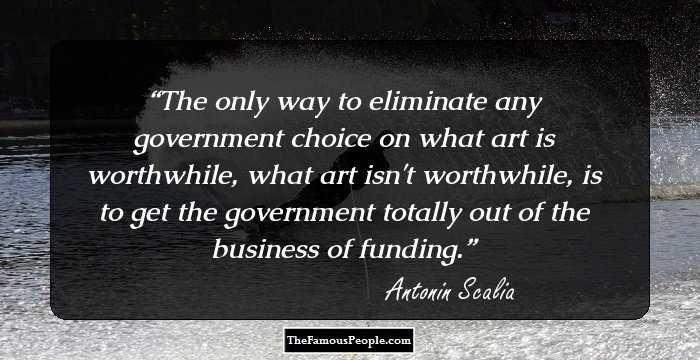
The only way to eliminate any government choice on what art is worthwhile, what art isn't worthwhile, is to get the government totally out of the business of funding.

I think I'm a pretty nice fella.

Wringing your hands about states' rights, forget it. They're gone. Basically, the federal government can do whatever it wants. Who's going to protect the states? My court? Ha - we're feds!

It is not rational, never mind 'appropriate,' to impose billions of dollars in economic costs in return for a few dollars in health or environmental benefits.

I'm not a scientist. That's why I don't want to have to deal with global warming, to tell you the truth.
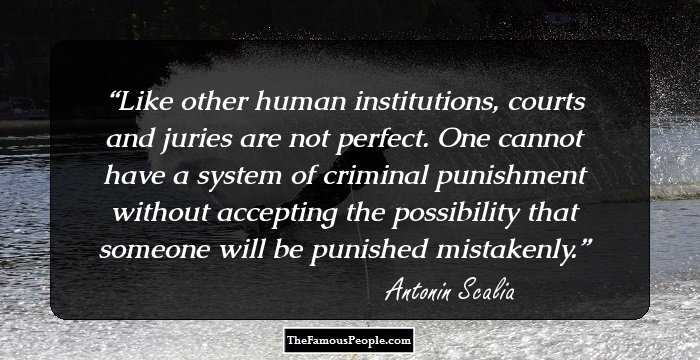
Like other human institutions, courts and juries are not perfect. One cannot have a system of criminal punishment without accepting the possibility that someone will be punished mistakenly.

I watched 'The Sopranos,' I saw a couple of episodes of 'Mad Men.' I loved 'Seinfeld.' In fact, I got some CDs of 'Seinfeld.' 'Seinfeld' was hilarious. Oh, boy. The Nazi soup kitchen? 'No soup for you!'
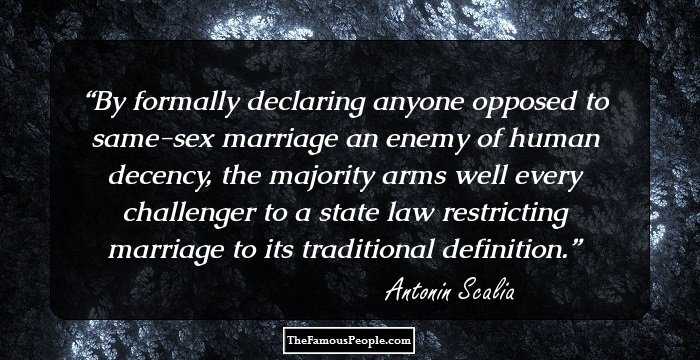
By formally declaring anyone opposed to same-sex marriage an enemy of human decency, the majority arms well every challenger to a state law restricting marriage to its traditional definition.
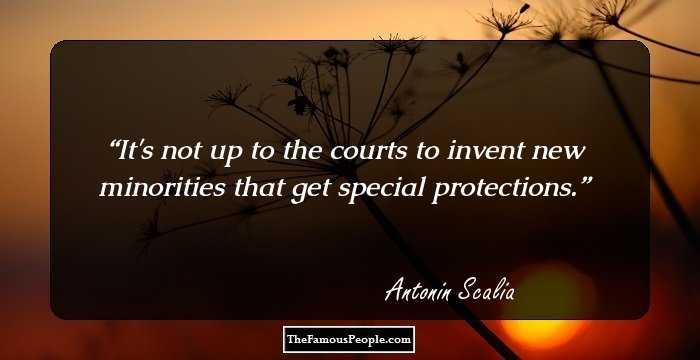
It's not up to the courts to invent new minorities that get special protections.
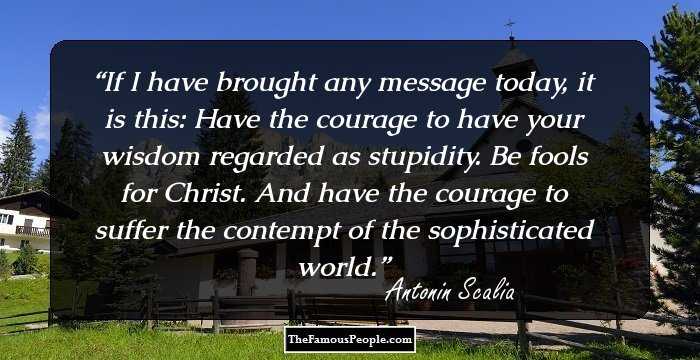
If I have brought any message today, it is this: Have the courage to have your wisdom regarded as stupidity. Be fools for Christ. And have the courage to suffer the contempt of the sophisticated world.

I think Thomas Jefferson would have said the more speech, the better.
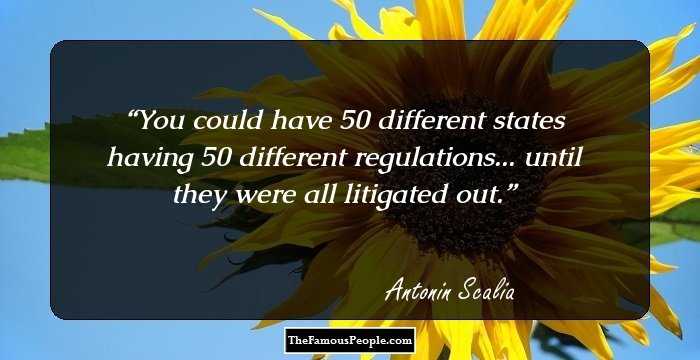
You could have 50 different states having 50 different regulations... until they were all litigated out.
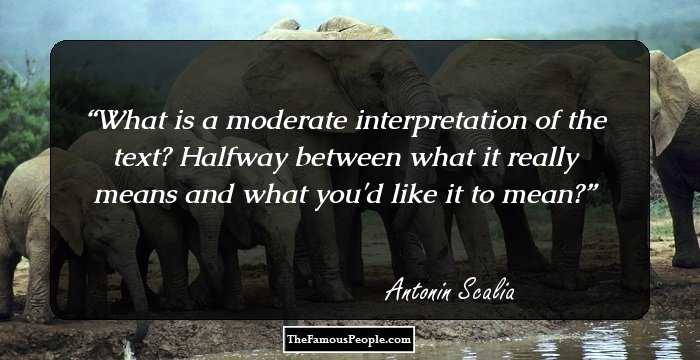
What is a moderate interpretation of the text? Halfway between what it really means and what you'd like it to mean?

Why can't the state accede to the public's wishes?
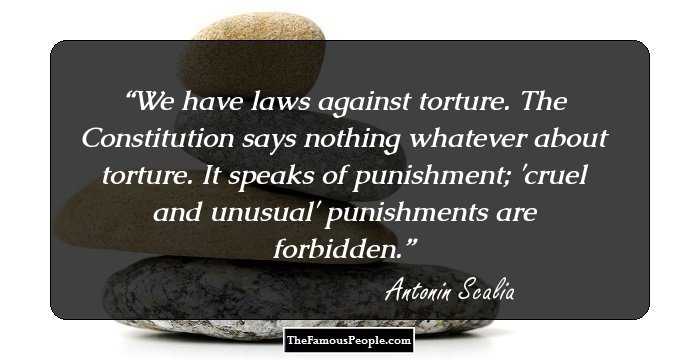
We have laws against torture. The Constitution says nothing whatever about torture. It speaks of punishment; 'cruel and unusual' punishments are forbidden.
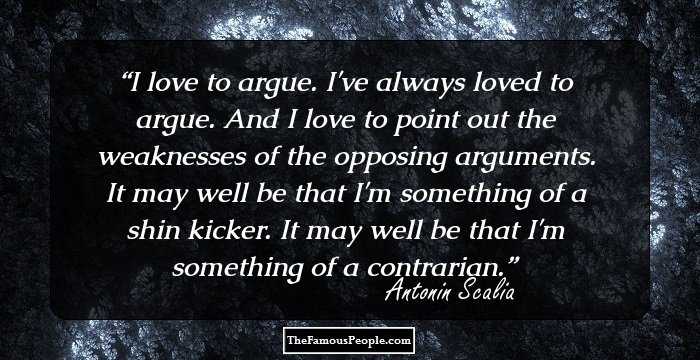
I love to argue. I've always loved to argue. And I love to point out the weaknesses of the opposing arguments. It may well be that I'm something of a shin kicker. It may well be that I'm something of a contrarian.










